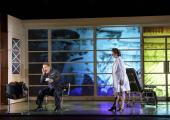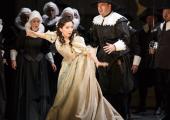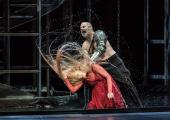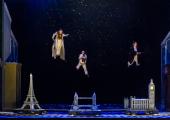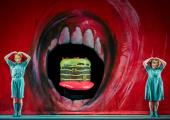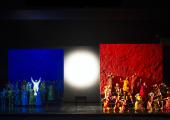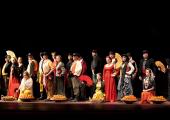Sweeney Todd, Welsh National Opera
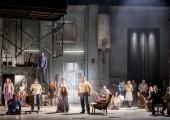
Sondheim as opera fails to stay the distance
If nothing else, Stephen Sondheim’s best-known work will put you off pies; it will put you off barbers; and it may in the end put you off Sondheim. Popular though it seems to be with planners and programmers, it’s sluggish and heavy going as drama and thin gruel as music: three hours of clever musical patter, repetitive orchestral mechanisms, and slinky variations on the “Dies irae”. When you’ve seen one throat-slitting, one human pie-bake, you’ve seen them all.

